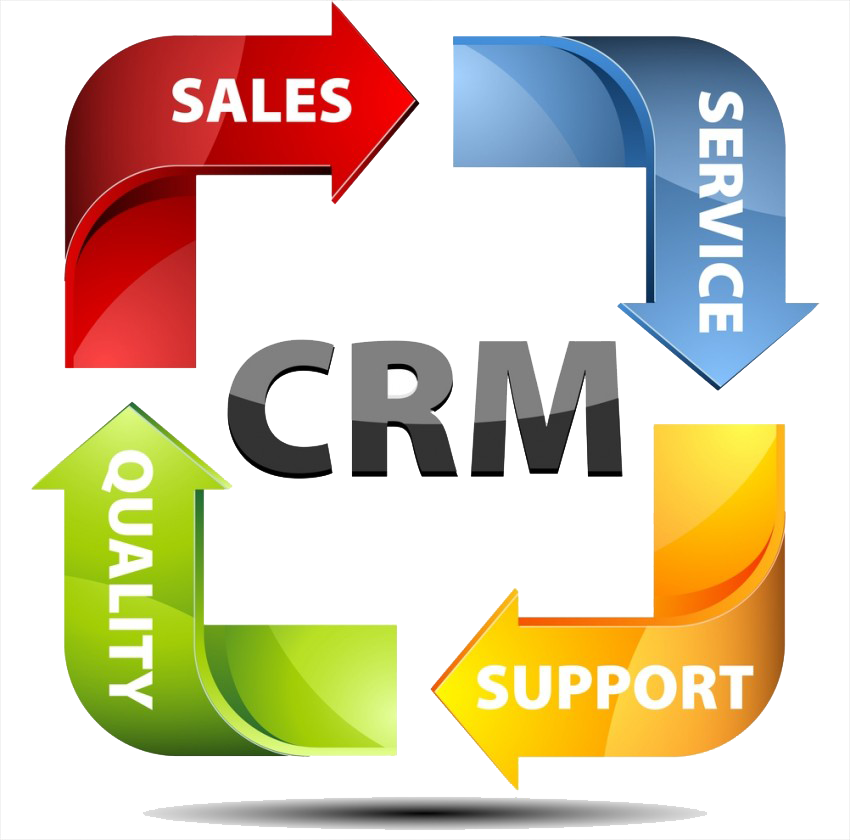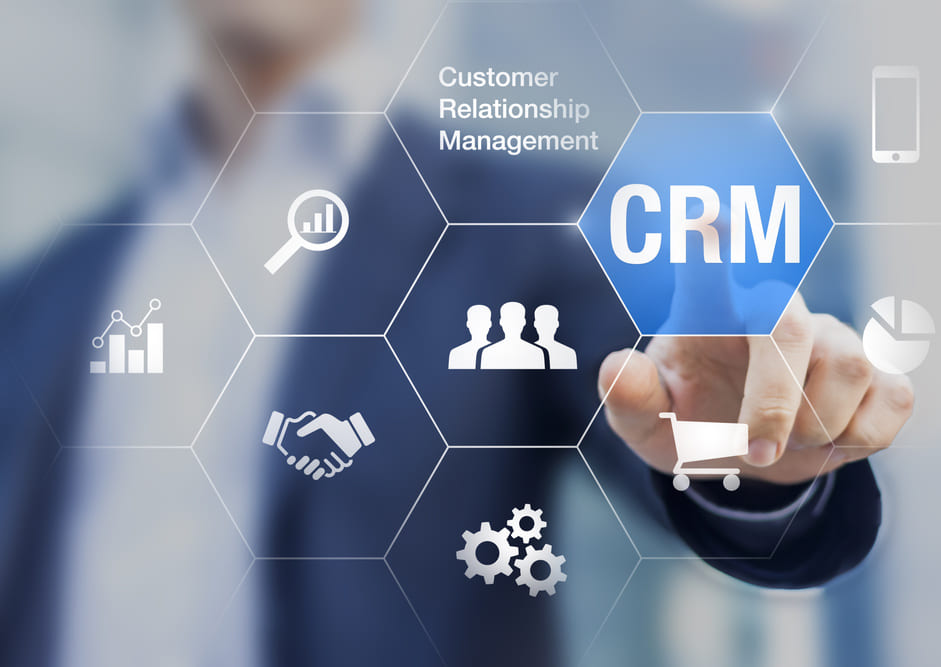Crm for consulting company – CRM for consulting companies is an indispensable tool that empowers businesses to streamline operations, enhance client relationships, and drive growth. By leveraging the capabilities of a robust CRM system, consulting firms can gain a competitive edge in today’s dynamic business landscape.
From managing client interactions to tracking project progress and automating tasks, a CRM system serves as a central hub for all consulting-related activities. It provides a comprehensive view of client data, enabling consultants to deliver personalized services and build stronger relationships.
CRM Benefits for Consulting Companies
Implementing a Customer Relationship Management (CRM) system can significantly enhance the operations of consulting companies. By centralizing client data, automating processes, and fostering collaboration, CRM systems empower consulting firms to deliver exceptional client experiences, streamline internal workflows, and gain a competitive edge.
Enhanced Client Management
- Centralized Client Database:CRM systems create a comprehensive repository of client information, including contact details, project history, and communication records. This centralized database provides a 360-degree view of each client, enabling consultants to tailor their services and build stronger relationships.
- Personalized Interactions:With detailed client profiles, consultants can personalize interactions based on client preferences, industry knowledge, and project requirements. This personalized approach fosters trust and enhances client satisfaction.
- Improved Client Communication:CRM systems facilitate seamless communication with clients through various channels, including email, phone, and live chat. Automated reminders, follow-ups, and personalized messaging streamline communication and keep clients informed.
Streamlined Processes
- Automated Workflows:CRM systems automate repetitive tasks such as scheduling appointments, sending invoices, and generating reports. This automation frees up consultants’ time, allowing them to focus on high-value activities that drive revenue.
- Enhanced Project Management:CRM systems provide a central platform for managing projects, tracking progress, and collaborating with team members. This real-time visibility and collaboration ensure efficient project execution and timely delivery.
- Improved Resource Allocation:By tracking consultant availability and project requirements, CRM systems optimize resource allocation. This ensures that the right consultants are assigned to the right projects, maximizing utilization and client satisfaction.
Improved Collaboration
- Centralized Communication:CRM systems provide a central hub for communication between consultants, project teams, and clients. This centralized platform eliminates silos and ensures that all stakeholders are on the same page.
- Enhanced Knowledge Sharing:CRM systems facilitate the sharing of best practices, project templates, and industry insights. This shared knowledge base empowers consultants to learn from each other and deliver consistent, high-quality services.
- Improved Team Performance:By fostering collaboration and knowledge sharing, CRM systems create a more cohesive and productive team environment. This improved team performance ultimately translates into better client outcomes.
Key Features to Consider

Selecting the right CRM for a consulting company requires careful consideration of essential features that align with specific business needs. Prioritizing modules for contact management, project tracking, and reporting capabilities is crucial for effective implementation.
A comprehensive CRM system empowers consulting companies to streamline operations, enhance client relationships, and drive business growth. To make an informed decision, it’s imperative to evaluate the following key features:
Contact Management
- Centralized database for storing and managing client information, including contact details, demographics, and communication history.
- Segmentation and filtering capabilities to target specific client groups based on criteria such as industry, location, or project status.
- Automated contact tracking to monitor interactions, record notes, and schedule follow-ups.
Project Tracking
- Project management module for creating, assigning, and tracking projects from initiation to completion.
- Task management capabilities to break down projects into smaller tasks, assign responsibilities, and monitor progress.
- Time tracking functionality to record billable hours and track project profitability.
Reporting Capabilities
- Customizable reports to generate insights into sales performance, client satisfaction, and project profitability.
- Dashboards and visualizations to provide real-time updates on key metrics and trends.
- Exporting capabilities to share reports with clients and stakeholders.
Integrations
Seamless integration with other business tools such as email, calendar, and accounting software enhances productivity and eliminates data silos.
Mobile Accessibility
Mobile-friendly CRM access enables consultants to manage client relationships, track projects, and access important information on the go.
Best Practices for Implementation

Implementing a CRM system in a consulting company is a crucial step towards optimizing client relationships and enhancing business operations. To ensure a successful implementation, it is essential to follow a systematic approach that encompasses key steps such as data migration, user training, and ongoing system maintenance.
Additionally, strategies for maximizing CRM adoption and fostering user engagement play a pivotal role in driving the long-term success of the CRM system.
The implementation process typically involves several key steps, including:
Data Migration, Crm for consulting company
Migrating existing client data from legacy systems or spreadsheets into the CRM system is a critical step. It is essential to ensure that the data is accurate, complete, and properly structured to facilitate effective data management and analysis. This may involve data cleansing, standardization, and mapping to conform to the CRM system’s data model.
User Training
Providing comprehensive training to users is crucial for successful CRM adoption. Training should cover not only the technical aspects of the system but also its business benefits and best practices for data entry, management, and utilization. Hands-on training sessions, user guides, and ongoing support can help users gain proficiency and confidence in using the CRM system effectively.
Ongoing System Maintenance
Regular maintenance is essential to ensure the CRM system remains up-to-date, secure, and functioning optimally. This includes software updates, data backups, and system monitoring to identify and address any potential issues promptly. Additionally, ongoing review and refinement of business processes and CRM configurations can help align the system with evolving business needs and maximize its value.
Strategies for Maximizing CRM Adoption and User Engagement
To drive successful CRM adoption and user engagement, several strategies can be employed:
- Executive sponsorship:Gaining support and buy-in from senior management can help create a positive environment for CRM adoption.
- Clear communication:Communicate the benefits and value of the CRM system to users and demonstrate how it can enhance their productivity and client interactions.
- Gamification:Incorporating gamification elements, such as rewards or recognition for CRM usage, can foster user engagement and motivation.
- Regular feedback:Seeking feedback from users and incorporating their suggestions can help improve the system’s usability and alignment with business needs.
- Ongoing support:Providing ongoing support and training can help users overcome challenges and maximize their use of the CRM system.
Case Studies and Success Stories
To illustrate the practical benefits of CRM systems for consulting companies, let’s delve into real-world examples where these solutions have been successfully implemented. These case studies showcase the challenges faced, the solutions adopted, and the positive outcomes achieved.
The following table summarizes key metrics and results from these case studies:
Case Study 1: XYZ Consulting
- Challenge:Lack of centralized client data, leading to inefficiencies in project management and communication.
- Solution:Implemented a CRM system to consolidate client information, track project progress, and improve collaboration.
- Results:20% increase in project completion rate, 15% reduction in client churn rate.
Case Study 2: ABC Consulting
- Challenge:Difficulty in tracking and managing leads, resulting in missed opportunities.
- Solution:Deployed a CRM system with robust lead management capabilities, including automated lead scoring and nurturing.
- Results:30% increase in lead conversion rate, 25% growth in new client acquisition.
Case Study 3: PQR Consulting
- Challenge:Ineffective knowledge management system, leading to duplicated efforts and inconsistent service delivery.
- Solution:Implemented a CRM system with integrated knowledge base, providing easy access to best practices and project templates.
- Results:18% reduction in project completion time, 12% improvement in client satisfaction.
Industry-Specific Considerations: Crm For Consulting Company
Consulting firms operate across diverse industry verticals, each with unique business processes and client needs. CRM systems must cater to these specific requirements to maximize their effectiveness.
Here are some key considerations for industry-specific CRM implementations:
Financial Consulting
- Compliance and regulatory reporting:CRMs should facilitate compliance with industry regulations and reporting requirements.
- Financial modeling and analysis:Integration with financial modeling tools enables consultants to analyze client data and develop tailored solutions.
- Client relationship management:CRMs help manage complex client relationships, track interactions, and provide personalized services.
Management Consulting
- Project management:CRMs provide tools for managing consulting projects, tracking progress, and collaborating with clients.
- Knowledge management:CRMs facilitate the sharing and dissemination of best practices and industry knowledge within the consulting team.
- Client engagement:CRMs enable consultants to engage with clients through multiple channels, track interactions, and nurture relationships.
IT Consulting
- Technical documentation:CRMs provide a central repository for storing and managing technical documentation, such as project plans and system specifications.
- Issue tracking:CRMs help track and manage client issues, ensuring timely resolution and customer satisfaction.
- Vendor management:CRMs streamline vendor relationships, track contracts, and facilitate collaboration.
Future Trends and Innovations
The future of CRM technology holds exciting advancements that will revolutionize the way consulting companies manage client relationships and drive business growth. Emerging trends like artificial intelligence, automation, and data analytics are transforming CRM capabilities, enabling consulting firms to provide exceptional client experiences and achieve operational efficiency.
Artificial intelligence (AI) is transforming CRM by automating tasks, providing personalized recommendations, and enhancing data analysis. AI-powered chatbots can handle routine inquiries, freeing up consultants to focus on complex client interactions. AI algorithms can analyze customer data to identify patterns and predict client needs, enabling proactive outreach and tailored service offerings.
Automation
- Streamlines administrative tasks such as scheduling appointments, sending emails, and generating reports, freeing up consultants’ time for more strategic initiatives.
- Automates data entry and updates, ensuring accuracy and reducing the risk of errors.
- Enhances client communication by sending automated reminders, follow-ups, and personalized messages.
Data Analytics
- Provides real-time insights into client behavior, preferences, and engagement levels.
- Enables data-driven decision-making, allowing consulting firms to optimize their CRM strategies and tailor services to specific client needs.
- Identifies cross-selling and up-selling opportunities, maximizing revenue potential.
These innovations empower consulting companies to build stronger client relationships, increase efficiency, and drive business growth. By embracing these emerging trends, consulting firms can stay ahead of the curve and deliver exceptional client experiences in the digital age.
Outcome Summary
In conclusion, CRM for consulting companies is a strategic investment that pays dividends in the form of improved efficiency, enhanced client satisfaction, and increased revenue. By embracing the latest CRM technologies and implementing best practices, consulting firms can unlock their full potential and achieve sustainable growth in the years to come.
FAQ Explained
What are the key benefits of CRM for consulting companies?
CRM systems offer numerous benefits for consulting companies, including improved client management, streamlined processes, enhanced collaboration, and increased revenue.
What are the essential CRM features for consulting companies?
Essential CRM features for consulting companies include contact management, project tracking, reporting capabilities, integrations with other business tools, and mobile accessibility.
What are the best practices for implementing CRM in consulting companies?
Best practices for CRM implementation in consulting companies include data migration, user training, ongoing system maintenance, and strategies for maximizing CRM adoption and user engagement.